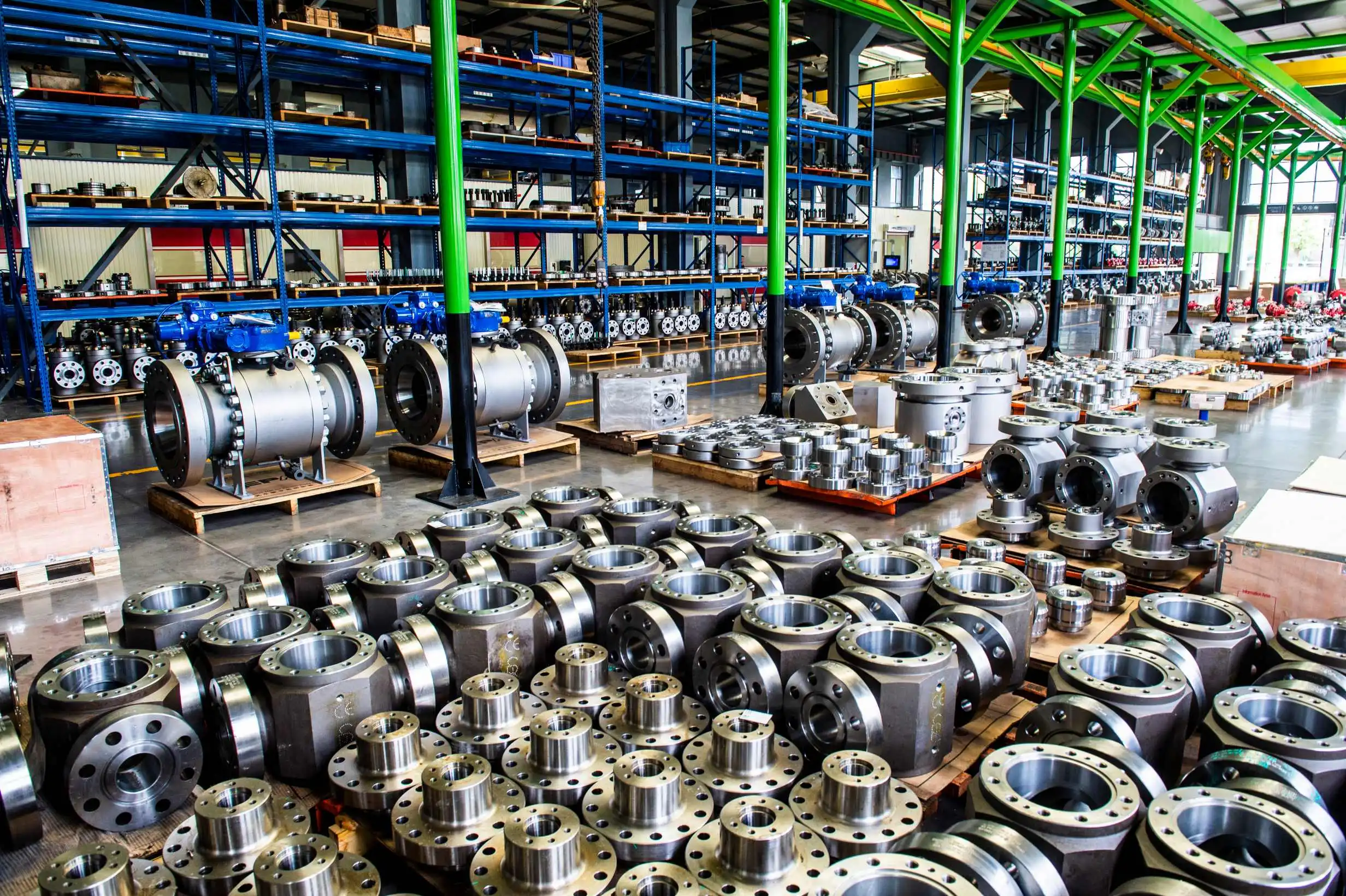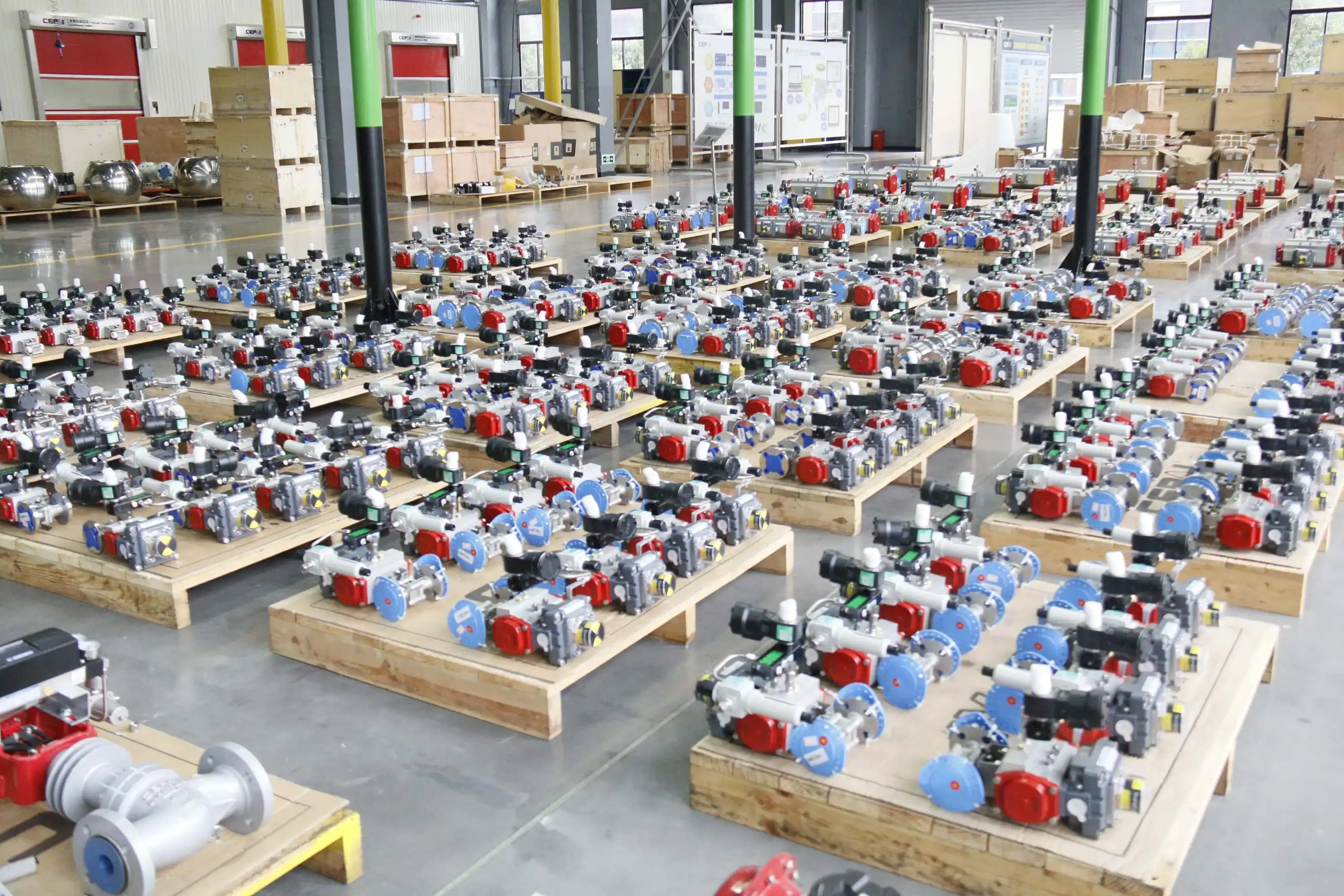Innovations in Wear-Resistant Sealing for Electric Valves
The evolution of wear-resistant sealing technology in electric valves represents a critical advancement in industrial automation and fluid control systems. Modern Electric Valves face increasingly demanding operational environments where traditional sealing materials often fail, leading to costly downtime and maintenance requirements. Today's innovations in sealing technology combine advanced polymer materials, sophisticated coating systems, and intelligent design principles to deliver unprecedented durability and performance. These breakthrough developments not only extend operational lifespan but also enhance precision control capabilities, making Electric Valves more reliable across petrochemical, power generation, and manufacturing applications where extreme temperatures, pressures, and corrosive media challenge conventional sealing solutions.

Advanced Material Technologies for Enhanced Durability
Revolutionary Polymer Compounds in Valve Sealing
The development of next-generation polymer compounds has transformed the sealing landscape for Electric Valves in demanding industrial applications. Advanced materials such as PTFE (Polytetrafluoroethylene), PEEK (Polyetheretherketone), and specialized polyimides now offer exceptional chemical resistance and thermal stability that surpass traditional rubber-based sealing solutions. These materials demonstrate remarkable performance characteristics, with PTFE exhibiting one of the lowest friction coefficients among commercially available materials, achieving near-rolling friction coefficients as low as 0.03 against polished stainless steel surfaces. This ultra-low friction property significantly reduces wear rates and extends seal life in Electric Valves operating under continuous cycling conditions. The molecular structure of these advanced polymers provides inherent resistance to chemical degradation, ensuring reliable sealing performance even when exposed to aggressive media such as acids, bases, and hydrocarbon compounds commonly encountered in petrochemical processing.
Supramolecular Self-Healing Sealing Systems
Modern Electric Valves increasingly incorporate revolutionary self-healing supramolecular polymer technologies that automatically repair minor surface damage during operation. These intelligent sealing materials utilize reversible molecular bonds that can break and reform under stress, effectively healing micro-cracks and surface imperfections that would traditionally lead to leakage and premature failure. The self-healing mechanism operates through dynamic cross-linking networks that respond to mechanical stress by redistributing molecular chains and closing microscopic gaps. This technology represents a paradigm shift in seal design philosophy, moving from passive wear resistance to active damage mitigation. Electric Valves equipped with these advanced sealing systems demonstrate significantly extended maintenance intervals and improved operational reliability, particularly in applications involving thermal cycling or vibration-induced stress. The economic benefits include reduced replacement costs, minimized unplanned shutdowns, and enhanced overall system availability for critical industrial processes.
Composite Material Integration for Extreme Conditions
The integration of composite materials in Electric Valves sealing applications has opened new possibilities for operation in extreme temperature and pressure environments. Advanced ceramic-polymer composites combine the chemical inertness and thermal stability of ceramics with the flexibility and processability of high-performance polymers. These hybrid materials excel in applications where traditional sealing materials fail, such as high-temperature steam systems operating above 400°C or cryogenic applications below -100°C. The composite structure allows for tailored properties, with ceramic particles providing thermal and wear resistance while the polymer matrix maintains flexibility and sealing capability. Carbon nanotube reinforced polymers represent another breakthrough, offering exceptional mechanical strength and thermal conductivity that enables effective heat dissipation from sealing interfaces. Electric Valves utilizing these composite sealing technologies demonstrate superior performance in power generation facilities, chemical processing plants, and offshore oil and gas operations where extreme conditions demand maximum reliability and longevity.
Precision Engineering and Smart Control Integration
Intelligent Actuator-Seal Synchronization Systems
The convergence of smart actuator technology with advanced sealing systems has created unprecedented opportunities for optimizing Electric Valves performance through real-time monitoring and adaptive control. Modern electric actuators equipped with position feedback sensors, torque monitoring, and diagnostic capabilities can automatically adjust sealing force based on operating conditions and seal wear patterns. This intelligent approach prevents both under-sealing, which leads to leakage, and over-sealing, which accelerates wear and increases energy consumption. The synchronization system continuously monitors parameters such as stem position, actuator torque, and sealing pressure to maintain optimal sealing performance throughout the valve's operational life. Advanced algorithms analyze operational data to predict seal wear patterns and recommend maintenance schedules, transitioning from reactive to predictive maintenance strategies. Electric Valves with integrated smart sealing systems provide operators with detailed performance analytics, enabling data-driven decisions about maintenance timing and operational optimization that significantly reduce total cost of ownership.
Multi-Stage Pressure Balancing for Seal Protection
Revolutionary pressure balancing technologies in Electric Valves now incorporate multi-stage systems that protect seals from excessive differential pressures while maintaining precise flow control. These systems utilize sophisticated valve core designs with integrated pressure relief passages that automatically balance forces across sealing surfaces, preventing damage from pressure surges or thermal expansion. The pressure-balanced valve cores reduce actuator requirements and extend seal life by minimizing the mechanical stress imposed on sealing interfaces during operation. Advanced computational fluid dynamics modeling has enabled engineers to optimize flow patterns around sealing surfaces, reducing erosion and turbulence that traditionally accelerated seal wear. Electric Valves incorporating these pressure balancing innovations demonstrate exceptional performance in high-pressure applications such as steam power generation, where pressure differentials can exceed 600 bar. The balanced design also enables more precise control at low flow rates, expanding the operational range and improving process control accuracy across diverse industrial applications.
Modular Sealing Architecture for Enhanced Serviceability
The development of modular sealing architectures represents a significant advancement in Electric Valves design, enabling rapid maintenance and customization for specific application requirements. These systems feature interchangeable sealing cartridges that can be replaced without removing the valve from the pipeline, dramatically reducing maintenance time and costs. The modular approach allows for application-specific seal selection, with different cartridge configurations optimized for various media types, temperature ranges, and pressure conditions. Advanced retention mechanisms ensure secure cartridge positioning while facilitating easy removal during maintenance operations. Electric Valves with modular sealing systems enable operators to upgrade sealing technology as new materials become available, protecting capital investments while continuously improving performance. The standardized interfaces between sealing modules and valve bodies simplify inventory management and reduce the need for specialized maintenance tools, making these advanced sealing systems accessible to a broader range of industrial facilities and operational teams.
Industry Applications and Performance Optimization
Specialized Solutions for Petrochemical Environments
The petrochemical industry presents unique challenges for Electric Valves sealing systems, requiring materials and designs that withstand aggressive chemical environments while maintaining precise control over hazardous media. Advanced sealing innovations specifically developed for these applications incorporate chemically resistant fluoropolymer compounds with enhanced thermal stability and reduced permeation rates. These specialized seals effectively handle corrosive hydrocarbons, acidic catalysts, and high-temperature processing streams that would rapidly degrade conventional sealing materials. The development of barrier coating technologies has further enhanced seal performance by creating protective layers that prevent chemical penetration while maintaining flexibility and sealing capability. Electric Valves designed for petrochemical applications now feature multi-layer sealing systems with primary and secondary barriers, ensuring containment even if the primary seal experiences degradation. Emergency response capabilities built into these sealing systems include rapid isolation features that can quickly shut off flow in case of seal failure, protecting both personnel and equipment from potential exposure to hazardous materials.
Power Generation and Steam Service Applications
Electric Valves operating in power generation facilities face extreme thermal cycling and high-pressure steam conditions that demand specialized sealing technologies. Innovations in this sector focus on materials capable of withstanding rapid temperature changes from ambient to over 600°C while maintaining structural integrity and sealing performance. Advanced metal-elastomer hybrid seals combine the thermal resistance of metallic components with the conformability of high-temperature elastomers, creating robust sealing solutions for steam turbine applications. The development of thermal barrier coatings has enabled conventional sealing materials to operate at higher temperatures by reducing heat transfer to sensitive components. Electric Valves in power generation applications now incorporate adaptive sealing systems that automatically adjust to thermal expansion and contraction, maintaining consistent sealing force throughout thermal cycles. These innovations have proven particularly valuable in combined cycle power plants where frequent startup and shutdown cycles place extreme demands on sealing systems, requiring materials that can withstand thousands of thermal cycles without degradation.
Water Treatment and Environmental Applications
The water treatment industry has driven significant innovations in Electric Valves sealing technology, particularly in applications involving aggressive chemicals used for disinfection and pH adjustment. Advanced sealing materials resistant to chlorine, ozone, and other oxidizing agents have been developed to ensure long-term reliability in municipal water treatment facilities. These specialized compounds maintain their physical properties despite prolonged exposure to chemicals that would typically cause swelling, hardening, or degradation in conventional sealing materials. Environmental regulations have also spurred the development of zero-leakage sealing systems that prevent any escape of treated water or chemical additives. Electric Valves designed for water treatment applications now feature double-barrier sealing systems with leak detection capabilities that can identify seal degradation before external leakage occurs. The integration of diagnostic monitoring systems allows operators to track seal performance in real-time, enabling proactive maintenance that prevents environmental compliance issues and ensures continuous operation of critical water treatment processes.

Conclusion
The innovations in wear-resistant sealing for Electric Valves represent a transformative advancement in industrial fluid control technology, delivering unprecedented reliability and performance across diverse applications. These breakthrough technologies, from self-healing supramolecular polymers to intelligent actuator-seal synchronization systems, address the critical challenges of modern industrial processes while reducing operational costs and enhancing safety. The integration of advanced materials, precision engineering, and smart monitoring capabilities positions Electric Valves as essential components for next-generation industrial automation systems.
As industries continue to demand higher performance and reliability from their fluid control systems, CEPAI Group Co., LTD. stands at the forefront of these technological advancements. With over 15 years of experience as a leading China Electric Valves factory and premier China Electric Valves supplier, CEPAI combines cutting-edge sealing innovations with proven manufacturing excellence. Our position as a trusted China Electric Valves manufacturer is reinforced by comprehensive certifications including API, ISO, and CE standards, ensuring our advanced sealing technologies meet the most demanding international requirements.
Whether you're seeking China Electric Valves wholesale solutions for large-scale projects or specialized Electric Valves for sale with custom sealing configurations, CEPAI's extensive product range and technical expertise deliver optimal solutions. Our competitive Electric Valves price structure, combined with High Quality Electric Valves featuring the latest wear-resistant sealing innovations, provides exceptional value for industrial applications worldwide.
Ready to experience the next generation of Electric Valves technology? Contact our technical experts today at cepai@cepai.com to discuss your specific sealing challenges and discover how CEPAI's innovative solutions can enhance your operational efficiency and reliability.
References
1. "Advanced Polymer Materials for High-Performance Valve Sealing Applications" - Materials Science and Engineering Review, Authors: Dr. Sarah Chen, Prof. Michael Rodriguez
2. "Wear-Resistant Coating Technologies in Industrial Valve Applications" - Journal of Mechanical Engineering, Authors: Dr. James Thompson, Dr. Lisa Wang
3. "Smart Actuator Integration for Enhanced Valve Performance" - International Journal of Fluid Control Systems, Authors: Prof. Robert Kumar, Dr. Elena Petrov
4. "Multi-Stage Pressure Balancing in High-Pressure Valve Systems" - Industrial Engineering Quarterly, Authors: Dr. Ahmed Hassan, Prof. Jennifer Clark

Get professional pre-sales technical consultation and valve selection services, customized solution services.

About CEPAI


